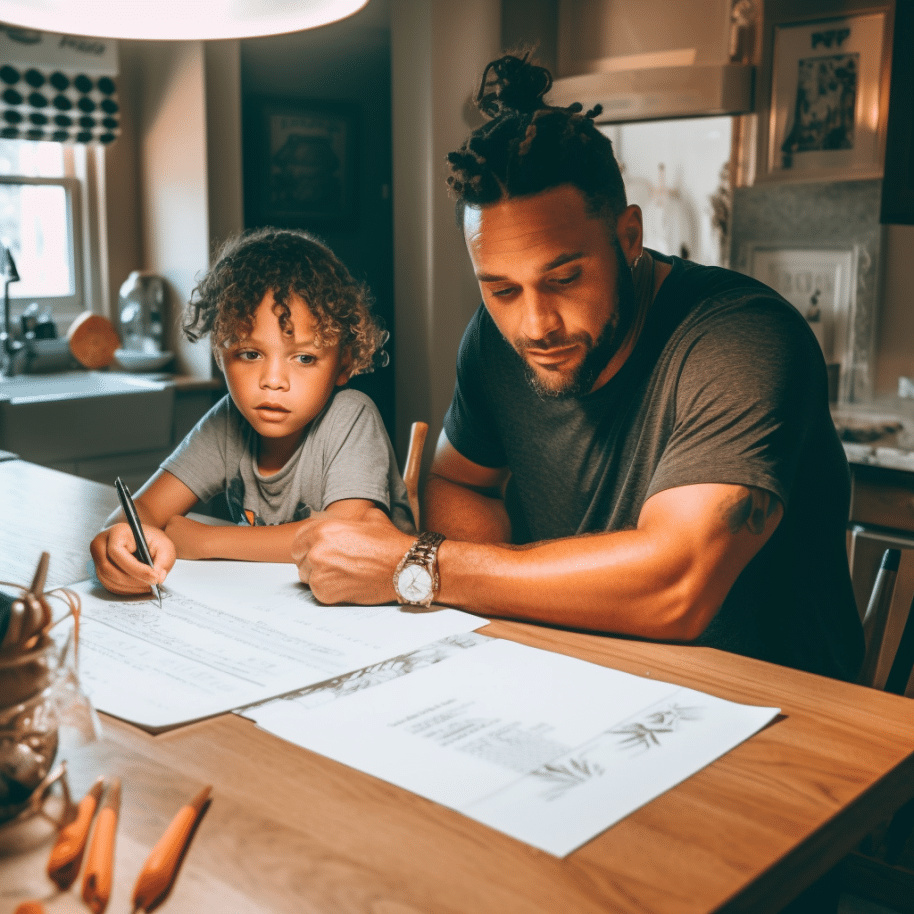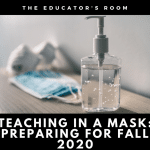While polls show that moms typically carried the heaviest burden in supporting children’s remote learning, many dads were also working hard to help their children learn at home.
Yes, I consider myself an active father. Yes, I am around more than my father was, but the credit is not entirely mine. While certain stigmas about fathers and caregiving still remain, I think it is safe to say that as generations pass, many young fathers want to be more involved in the lives of their children. While our fathers were asked to “watch the kids,” I choose to parent my children, which made the challenge of remote schooling my burden to shoulder as well as my wife’s.
The Beginning of Remote Learning
My wife and I have a 4-year-old daughter and a 7-year-old son. Both of us work full-time, and our son was in kindergarten when COVID-19 hit in March 2020. Our initial remote learning experience was not pleasant, to say the least. In spite of a fantastic teacher who was more than willing to offer support, the first attempt at virtual learning was nothing more than one short meeting a day followed by websites and worksheets to complete.
While my son did appear to be learning bits of content here and there, all parents know that school is about much more than content. My son grew increasingly unhappy without socializing, he wanted to sit on my lap during all lessons, and eventually, he uttered possibly the last thing we wanted to hear during this time, “I used to like writing, now I hate it.” As an educator myself, this was particularly devastating because I felt like I was failing him.
Clearly, remote learning was not working. Like most, we were in survival mode and just trying to keep our children safe while not getting fired.
The Preschool Experience
My preschool daughter’s experience was a different story altogether. When her childcare program that we loved was closed, her teachers provided worksheets and occasional online chats. Her “working time” was sandwiched between crying and whining about being bored.
Our day-to-day frustration was compounded by the stress that childcare may not open for several months or even close permanently. Then there was the parental concern over screen time that went out the window because everything is screen time.
Summertime Blues
We did the best we could. We made family drawings, went on hikes, and rode our bikes. When we had drive-by interactions with friends or some social contact, my children were like different people. I almost forgot what it was like for them to be happy.
Finally, my wife and I thought that there wasn’t enough going on and wanted to take advantage of low-interest rates, so we started to look into moving. Things began to open up over the summer, but the possibility of a virtual school year was constantly hanging over our heads like a dark shadow.
As a modern father, I wanted to help my children not only for their happiness but to support my wife in her career and sanity. Our relationship has always been rooted in equality and proactively being high when the other one is low. This was a whole new ball game that created unavoidable conflicts and an entirely new set of needs. I never have nor did I plan to work with my wife, and, like most couples, we figured by the end of this, we would either get divorced or go on a second honeymoon. We are still together.
Finding Our Way
Having put all this out there, with adjustments in place and a vaccine on the horizon, the light seems to be at the end of the tunnel. My son began first grade in a hybrid model and went to a virtual learning center during his days at home, and we could actually get work done. There were a few COVID-19 cases at school, but they were handled well, and I was impressed by the school’s new protocols.
I am aware that my family is doing better than most. A friend of mine who is also a father has a son with special needs. At the end of kindergarten last year, his child could barely identify letters. At that point, the teacher told his parents just to get through the day and not to worry about virtual learning. This situation was upsetting on so many levels. Things improved over the summer. When we last checked in, our friends told us that he had made great strides in reading while attending school virtually.
Lessons Learned
This period of remote and hybrid learning has been difficult for our family and our community, but it has also been a learning experience and a period of self-reflection. We have realized what is important to ourselves and to our family. We have also seen both the worst and the best in people. For example, I have learned that the changes in behaviors, such as wearing masks, were much easier for my kids than they were for me. They just don’t understand why someone would refuse to wear one.
I am also working on changing the way I respond to challenging situations. I have incorporated more practices of gratitude and mindfulness using such apps as Headspace. There are also a number of paid and free resources to help parents relieve stress.
In the end, every family is different, and so is every child. The bottom line is everyone needs to take joy and relief where they can find it.

About the Author
David Dickerman graduated with a B.S. from Syracuse University and received M.S. Ed. degrees in both Childhood Development and Literacy from Bank Street College of Education in New York City. He currently works as an assessment specialist in Princeton, New Jersey, and lives with his family in New Hope, Pennsylvania. Prior to this role, he served as an elementary teacher, literacy specialist, and program manager.
Sources
Ford, Christiana, “Dad Takes Virtual Learning Changes for Special Education into His Own Hands,” 2020
Kuhfeld, Megan, Tarasawa, Beth, Johnson, Angela, Ruzek, Erik, and Lewis, Karyn, “Learning During COVID-19: Initial Findings on Students’ Reading and Math Achievement and Growth,” 2020
Livingston, Gretchen, “Stay-at-Home Moms and Dads Account for About One-in-Five U.S. Parents,” 2018
Mayo Clinic Staff, “Screen Time and Children: How to Guide Your Child,” 2019
Meckler, Laura, and Natanson, Hannah, “’A Lost Generation’: Surge of Research Reveals Students Sliding Backward, Most Vulnerable Worst Affected,” 2020
Moody, Josh, “10 Teaching Resources for Parents During COVID-19,” 2020
Wexler, Natalie, “How to Prevent COVID from Creating a ‘Lost Generation of Students,’” 2020





